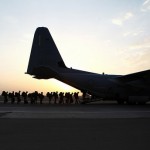Paul Eaton Quoted in Foreign Policy on the Syrian and Iraqi Militaries
Do Iraq and Syria No Longer Exist, and if so?: Yes, and that’s a big reason why their militaries simply won’t be effective
By Thomas E. Ricks
October 28, 2014 | Foreign Policy
Paul Eaton, a retired Army major general who oversaw the training of the Iraqi military from 2003 to 2004:
“Creating a soldier from an 18-year-old civilian is easy in most Western nations. We make them physically tough, give them the military skill sets necessary to prosecute the mission, and amplify what my British colleagues call the moral component. This final part of the soldierization phase is essentially a trust in national institutions and a belief in the chain of command from squad leader to the commander-in-chief. For a Westerner, the moral component is built over the new soldier’s lifetime and is strengthened in uniform.
For countries without a strong democratic tradition, establishing the moral component is a real challenge and particularly so for me and my team as we rebuilt the Iraqi Army in 2003. Fifteen hundred years of the paternalism of Islam and over three decades of Saddam’s despotism are hard to overcome.
During a visit with the Jordanian Army in 2003, I noticed a general wearing a pin — the Jordanian flag with the numeral one superposed. He explained that it did not mean we’re number one, but per the king’s request, was worn to state “Jordan first.” Jordan above family, imam, religion, ethnicity, tribe, sheikh — and anything else that would compete with loyalty to the state.
King Abdullah, a graduate of Great Britain’s Royal Military Academy Sandhurst, clearly understands the importance of the moral component in the creation of a soldier who believes he is a legitimate actor, acting on behalf of a legitimate government.
It took Great Britain almost three centuries of work in India to develop all the institutions necessary for a modern, though immensely complex state, to function effectively politically, economically and militarily.
To read more, click here.





